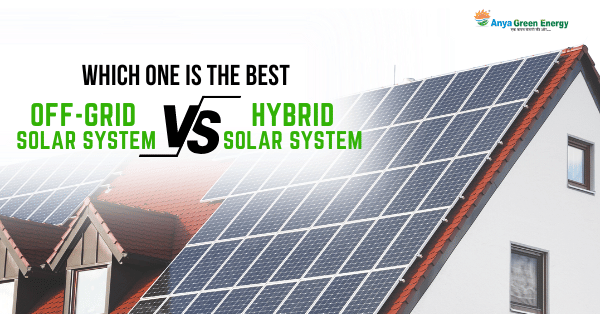HYBRID SOLAR SYSTEM FOR CHARGING STATION
As the world pivots towards sustainable energy solutions, charging stations are embracing innovation with hybrid solar systems. This blog delves into the rationale behind opting for a hybrid solar system for charging stations, explores the significance of this eco-friendly solution, and highlights the numerous advantages it brings to the table.
Get Hybrid Solar System for Charging Station

Why choose hybrid solar system for charging station ?
The decision to choose a hybrid solar system for a charging station is deeply rooted in the pursuit of sustainability and energy efficiency. With the increasing demand for electric vehicles (EVs), charging stations face the challenge of meeting this demand while minimizing their environmental impact. A hybrid solar system offers an intelligent solution by integrating solar and conventional grid power, ensuring a continuous and eco-friendly energy supply.
Importance of hybrid solar system for charging station
Charging stations are pivotal in facilitating the transition to electric vehicles, and the importance of a hybrid solar system in this context cannot be overstated. These systems provide a sustainable and reliable energy source, essential for the seamless operation of charging infrastructure. By reducing reliance on conventional grid power, charging stations can contribute significantly to reducing carbon emissions and promoting clean energy practices.
Benefits of hybrid solar system for charging station
Cost-Efficiency: Hybrid solar systems for charging stations translate into significant cost savings. The solar component harnesses energy during daylight hours, reducing reliance on grid electricity and lowering operational expenses.
Continuous Operation: A key advantage is the uninterrupted operation of the charging station. Solar power generated during the day ensures continuous availability, even during grid outages or high-demand periods.
Environmental Impact: Charging stations adopting hybrid solar systems play a crucial role in environmental conservation. By relying on solar energy, these stations reduce their carbon footprint, contributing to the global shift towards cleaner transportation.
Energy Independence: Hybrid solar systems grant charging stations a degree of energy independence. This autonomy shields them from fluctuations in grid electricity prices, ensuring stability in operations.
Government Incentives: Governments worldwide are incentivizing the adoption of renewable energy solutions. Charging stations investing in hybrid solar systems may be eligible for various subsidies, tax benefits, and grants, enhancing the financial viability of the system.
Customer Attraction: An environmentally conscious approach can attract eco-minded customers. Charging stations with hybrid solar systems align with the values of an environmentally conscious consumer base, potentially boosting customer traffic.
Grid Support: Hybrid solar systems can provide grid support by feeding excess energy back into the grid during peak production periods. This not only benefits the charging station but also contributes to grid stability.
Long-Term Investment: Viewed as a long-term investment, hybrid solar systems prove their worth over time. With reduced operating costs and positive environmental impact, they offer a sustainable and economically viable solution for charging stations.
Technological Advancements: Hybrid solar systems leverage advanced technologies such as energy storage solutions and intelligent inverters. These innovations enhance system efficiency, making them more reliable and resilient.
Scalability: Hybrid solar systems are scalable to the size and demand of the charging station. This flexibility allows stations to expand their cap
In conclusion, the adoption of a hybrid solar system for charging station represents a forward-thinking commitment to sustainability, cost-efficiency, and energy independence. Beyond financial savings, these systems contribute to global efforts in mitigating climate change and fostering a greener future.
As the world embraces electric vehicles, charging stations equipped with hybrid solar systems stand at the forefront of the transition, demonstrating that clean energy practices are not just a trend but a necessity for a sustainable tomorrow. Embracing hybrid solar technology is not merely a choice; it’s a powerful step towards revolutionizing the charging infrastructure and shaping a more sustainable transportation landscape.


